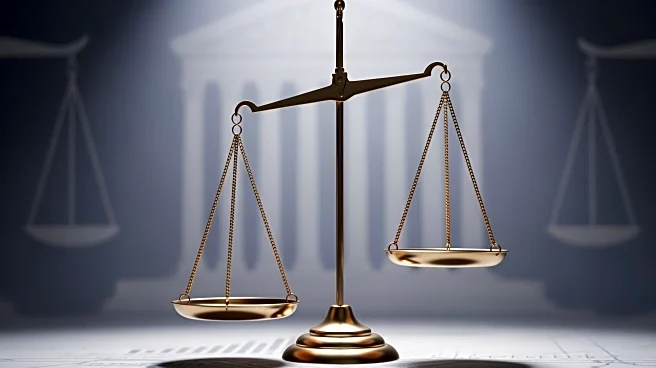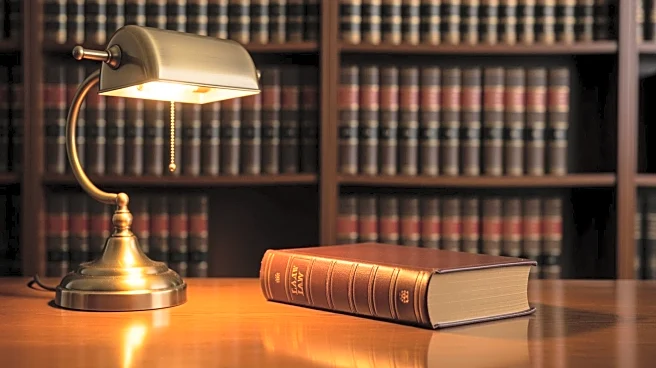What's Happening?
Traders on prediction markets have reduced the odds of the Supreme Court upholding President Trump's tariffs, following signals of skepticism from the justices during oral arguments. Contracts tied to
the court ruling in favor of Trump's tariffs dropped to around 30% on platforms like Kalshi and Polymarket. The tariffs, imposed under the International Emergency Economic Powers Act, have faced legal challenges, with lower courts ruling that Trump overstepped his authority. Justices expressed doubts about the administration's legal justification, questioning the broad authority claimed by Trump to impose tariffs, which critics argue infringes on Congress's power to tax.
Why It's Important?
The Supreme Court's decision on Trump's tariffs could have significant implications for U.S. trade policy and executive authority. If the court strikes down the tariffs, it may limit the president's ability to unilaterally impose trade measures, reinforcing congressional oversight. This could impact U.S. relations with trading partners and influence future trade negotiations. The case also highlights the balance of power between the executive and legislative branches, with potential consequences for the scope of presidential authority in economic matters. Traders' reactions in prediction markets reflect broader uncertainty about the administration's trade agenda.
What's Next?
The Supreme Court has not yet issued a decision, leaving uncertainty about the future of Trump's tariffs. The ruling, when released, will clarify the extent of presidential authority under the International Emergency Economic Powers Act. Stakeholders, including businesses and trade partners, are likely to react to the decision, which could influence trade policies and negotiations. The case may also prompt discussions on legislative reforms to clarify the scope of executive powers in trade matters. The outcome could set a precedent for future cases involving presidential authority in economic policy.
Beyond the Headlines
The case raises broader questions about the balance of power in U.S. governance and the role of the judiciary in checking executive actions. The skepticism expressed by justices reflects ongoing debates about the limits of presidential authority and the importance of congressional oversight. The decision could influence future legal challenges to executive actions, particularly in areas involving economic policy and international relations. The case also underscores the role of prediction markets in gauging public sentiment and expectations in high-profile legal matters.










